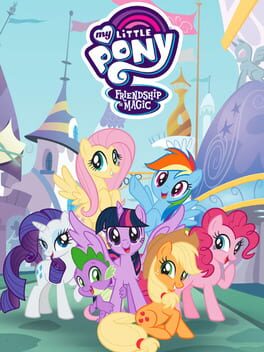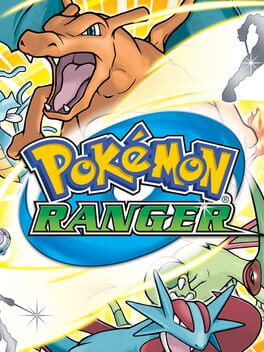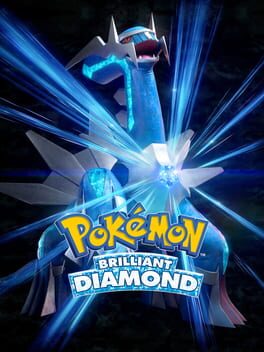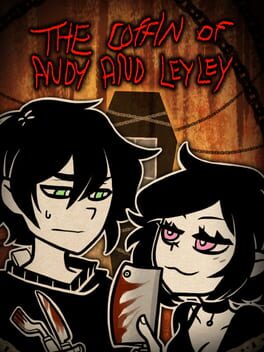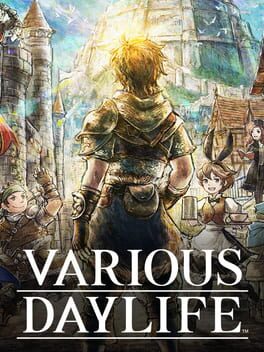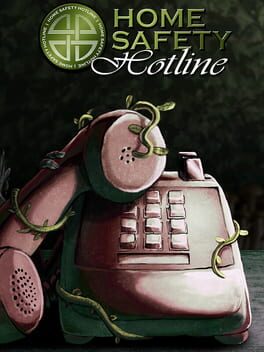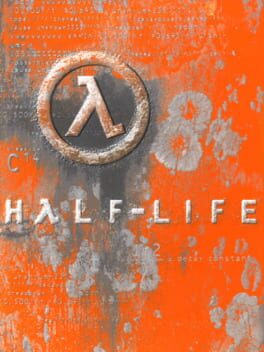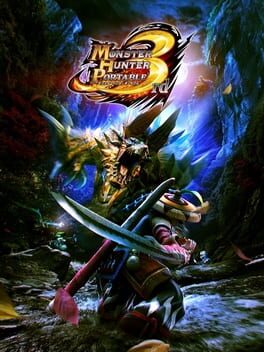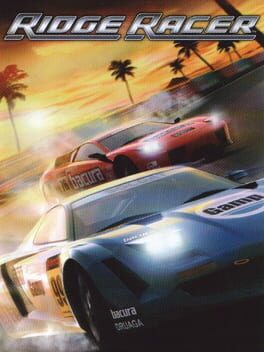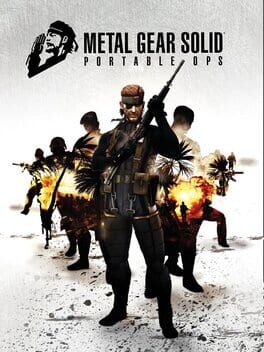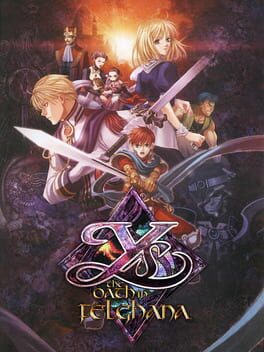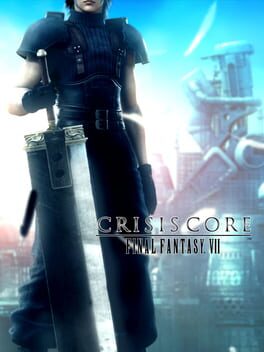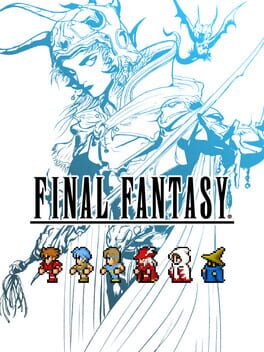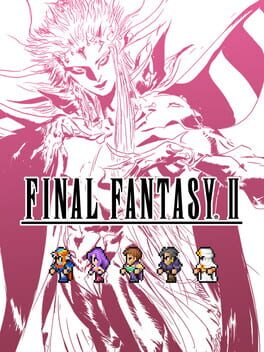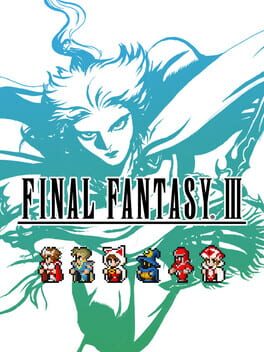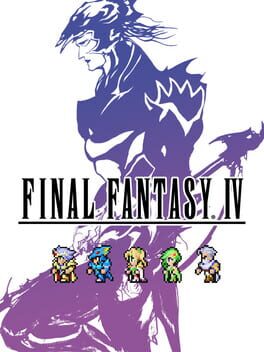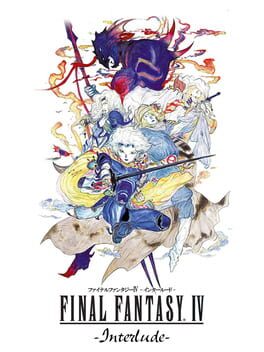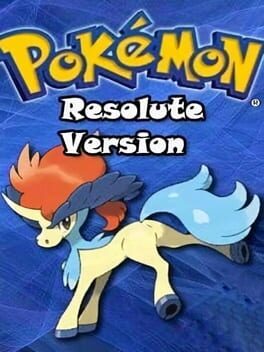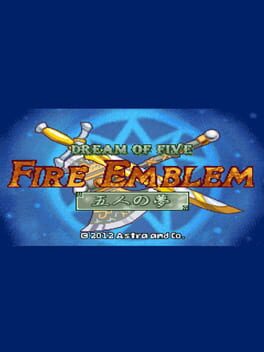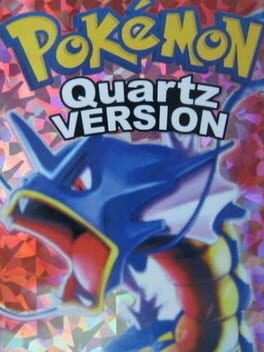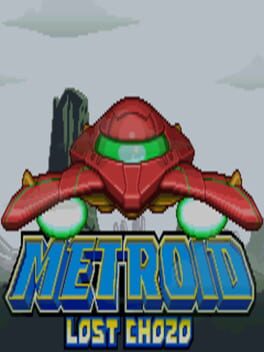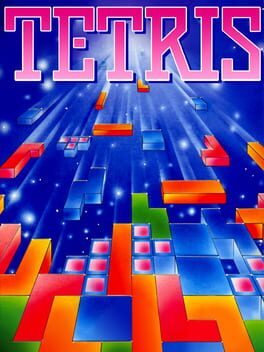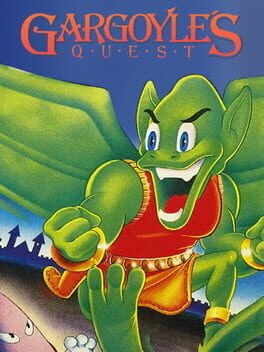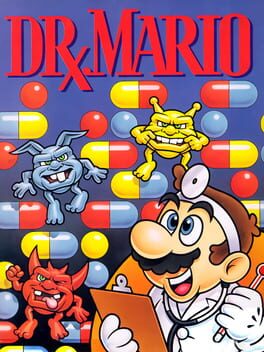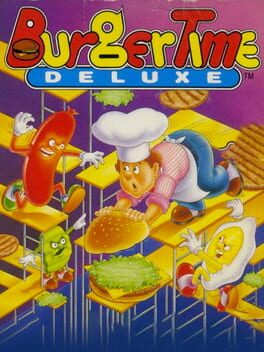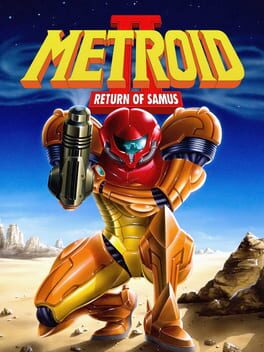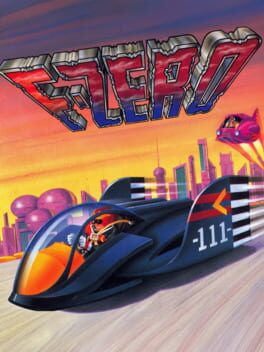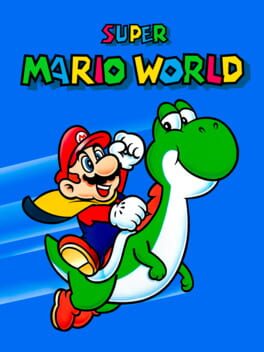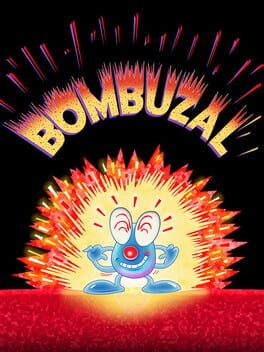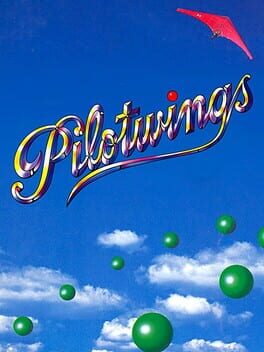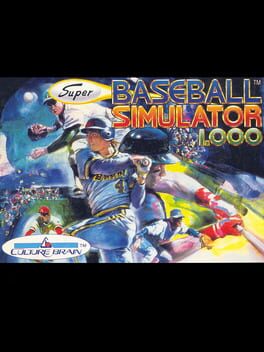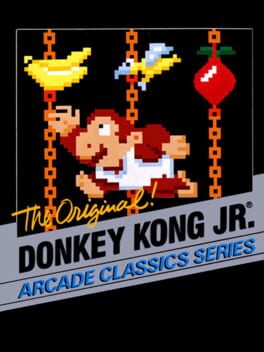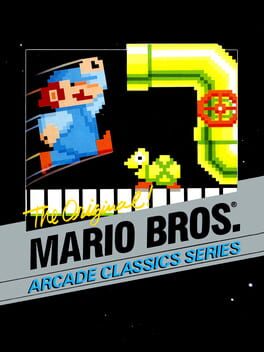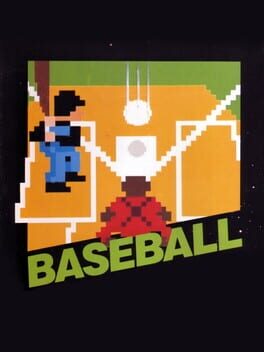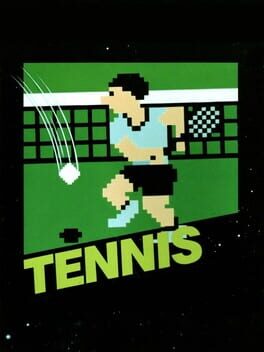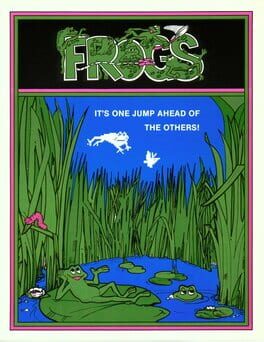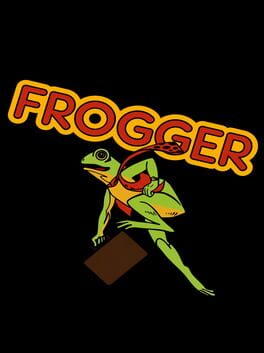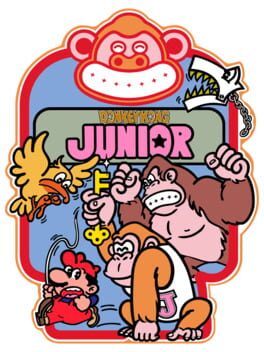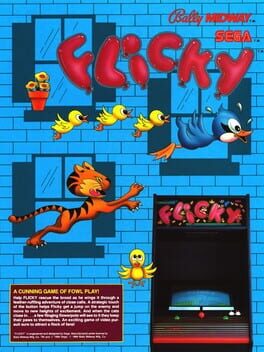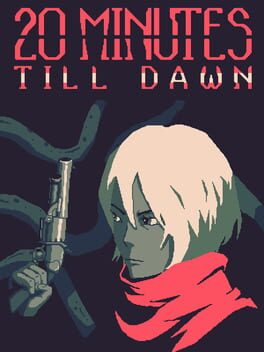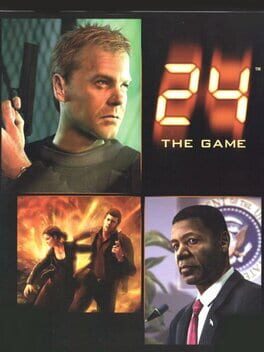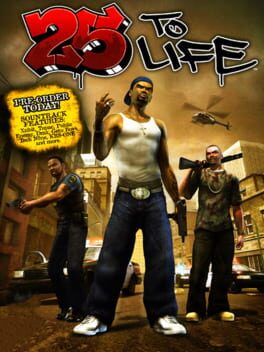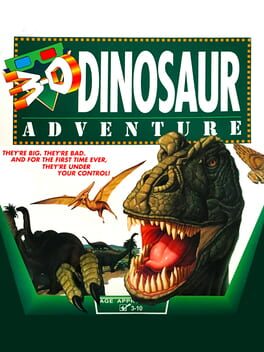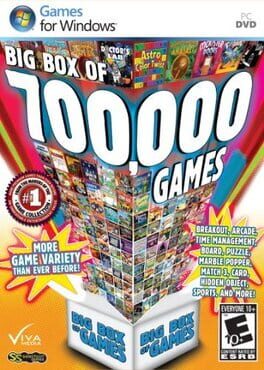nettie97
434 reviews liked by nettie97
Pokémon Ranger
2006
Various Daylife
2019
Portal
2007
I think that if there is any art-form that successfully reflects the condition of living under late-capitalism, that would be videogames (what a start, I know lol, but hear me out). There is always this idea of control that a player has when going through the experience. The feeling that you are the one that has the freedom to do whatever you want. That you have a choice over your actions and that whatever you are lead to, is because of your own interests. Since you are the one controlling this figure and making everything that seems relevant in this world.
However, you are never truly in control of your actions because everything you do in the virtual space has been predetermined and calculated by people above you who designed this system. You’re directed to perform certain tasks that they want you to, while others you’re limited to because they either didn’t plan for you to use the system in that way or because they went out of their way for you to not do that which you’re trying. Agency is nothing more than an illusion that any game sets on you because you are not doing more than what they ask you or what they allow you. The system was designed by them, and you are not doing more so than acting under its restrictions.
Some videogames, like for example those in the sandbox genre, capitalize on the power fantasy of being free. They sell you the idea that you are going to be allowed to do whatever you want. That you’re going to indulge in your wildest wishes and accomplish them. Living in this space as if it was reality and ascending in a hierarchy until you, as the exceptional you are, end on the top.
However, that cannot be seen as nothing more than dishonest because in the end video game are always limited. There are many tasks you cannot perform in GTA V, for example. No matter how much they thought it out, the system can only account for what the creators set up, along some outsiders that are produced out of its failures more than anything else. They might make it seem as freedom, but it is nothing more than the fantasy of freedom. (Not something that makes the games bad necessarily as there is still value in the illusion, but there is no denying in what it is).
And even without that, those very same sandbox games, ironically enough, end up having very linear and hermetic story modes in which you’re strictly told what to do. The instructions are clear and there is not space for the player to take a different path for that target. The contrast in the process reveals the farce of the surrenders and that you never had any freedom in the first place. The control is taken away from you from the start and the only things you can do are things you are asked to do.
The existence of this aesthetic hegemony of games that favor false freedom and saturation of options to hide your lack of agency only makes it more interesting when a game comes out and sets itself to be conscious about the conditions you are put in as player. Hotline Miami being one I recently talked about, but on the other hand there is also, among many others, Portal.
Interestingly enough, a game that was created few years after Half Life 2 by the same company. That one founding itself in empowering oneself against the system through revolution, just for your efforts to become meaningless. Despite how much other characters in the game try to enhance you as myth, you are nothing more than a puppet for a supernatural entity that decides to put you in this scenario just to take you as soon as you finished your task. Portal is not too distant, but I would argue its use of symbols to evoke similar territory is more sophisticated.
You wake up in a room with no information about yourself, and right away, a machine guides you through tests that you have to pass (while not being given an explanation). From that point on everything you perform in this space, every gesture and every action is instructed directly by the machine, who gives you information about how to solve the scenarios. You might be the one resolving the set pieces, but it is not too different from a laboratory rat that is promised a cheese at the end of the maze (in your case, a cake). The scenarios were designed by them for you to resolve in only one way, and there is nothing you can do in response other than obey. A brilliant touch to demonstrate this is how at the start the portals are put by the machine for you to solve the puzzles instead of giving you the gun and the two kind of portals right away.
Something that, on one hand is functional from a design standpoint. Since it allows the player to get used to the systems. Leaving a space between every element you are given so you can assimilate the information, giving a sense of there being a difficulty and complexity curve increasing at your pace. However, symbolically, it already presents the element about lack of agency revealing the fakery of it all. That the scenarios are artificially constructed for you with a single path to cross.
The dynamic of control that the machine GLaDOS has on you, however, changes halfway through. When you stop being useful to her and her tasks, she attempts to murder you. You served her interests and since you were nothing more than a tool now you have to be thrown away like many others before you. That is the point in which you rebel against your position. You stop being submissive, and you start using the gun to create portals where GLaDOS did not plan. You move behind the red curtain where you see everything going on to make the puzzles possible. In dark industrial places characterized by its violent cylinders that smash the walls and give little room for motion and comfort. Contrasting with the clean and polished places you are presented for the tests.
You do what it was not planned for you to do. You take what you are learned (with help of efforts by someone that preceded you and suffered in the same environment) and apply it without being told by a superior what to do and how to do it. In fact, you assert dominance by repeatedly doing the opposite of what you are told. The oppression reached such point of violence that now the only solution is to fight back. Which is very interesting in how the game applies it in multiple ways, including especially that you kill GLaDOS by using the missiles of her gun turret against her with the portals.
Like by the end of Half Life 2, there is a sense of empowerment in this comeback. You do not only fight back, you are even better with you tools that you were before. Now that you are at your peak, nothing can stop you from achieving the emancipation of the powers that repress you. However, through a melancholy finale, that empowerment is recontextualized as futility. And for Portal specifically, that gives sense to its individualist focus throughout the journey.
You might have successfully defeated the one machine that was gaslighting you, manipulating you and controlling you, but such effort was meaningless. So concentrated into a single being that it practically produces zero material effects outside of the little story you lived.
You see the woods; you see nature after having seen exclusively the mechanical. But an unknown robot takes your body to pull you back into the structure. Because the structure is still there, and you cannot change it by destroying one individual. You are back in your submission, probably to repeat the cycle of tests and control.
Is a more than functional exploration of corporative control against human interests, neoliberalism advancing towards structures that are more detached and cold, resulting in the further alienation of the people. Moreover, it is even more successful as a metaphor for games and the dynamics between creator, player and the game itself due to the precision of the symbols and aesthetics employed to evoke this significance. I would even prefer it to Half Life 2 in this reading of the political and the Meta as both interconnected because of the synthesis.
The way this plays out so simply, with no more than what is needed to tell its story, instead of extending itself to a duration that would conform to what is expected, feels almost “anti-commercial” (as much as an accessible, mainstream game can be) in its attempt. Two hours of content, a main story and that’s it. This was something that, when I first played it, underwhelmed me about the work because it felt like it was offering too little in comparison to the standards of what a game offers. However, is exactly that what compels me so much about this and makes me prefer it to its sequel.
Portal 2 might expand on the concepts and might give more to the player to extend the life of the title, but in my opinion it feel like a sequel that tries to replace the original by giving the same but More. More story, more characters, more puzzles, more tools, more Lore, more duration, more play modes, more everything. It’s a way of creating sequels that feels uncomfortable to me because it presumes video-games as a commodity to constantly improve on rather than as pieces of art to revisit, which is something that Valve’s sequels (except for Half Life 2) suffer from.
On the other hand, Portal is comfortable being concise. Making every element memorable rather than trying to saturate the experience. And it makes it feel like more artistic and sincere in its exploration of thematic ideas and ludic concepts (using the first person format for a genre like puzzles, using the mechanics of Half Life to explore and figure out rather than to make your way killing). And is the kind of simplicity that makes its speech more convincing, more so when comparing it to Half Life 2 that runs into some contradiction due to how it is designed.
Honestly, games should learn from this that not all stories need to be extensive, and sometimes brevity can be your virtue.
However, you are never truly in control of your actions because everything you do in the virtual space has been predetermined and calculated by people above you who designed this system. You’re directed to perform certain tasks that they want you to, while others you’re limited to because they either didn’t plan for you to use the system in that way or because they went out of their way for you to not do that which you’re trying. Agency is nothing more than an illusion that any game sets on you because you are not doing more than what they ask you or what they allow you. The system was designed by them, and you are not doing more so than acting under its restrictions.
Some videogames, like for example those in the sandbox genre, capitalize on the power fantasy of being free. They sell you the idea that you are going to be allowed to do whatever you want. That you’re going to indulge in your wildest wishes and accomplish them. Living in this space as if it was reality and ascending in a hierarchy until you, as the exceptional you are, end on the top.
However, that cannot be seen as nothing more than dishonest because in the end video game are always limited. There are many tasks you cannot perform in GTA V, for example. No matter how much they thought it out, the system can only account for what the creators set up, along some outsiders that are produced out of its failures more than anything else. They might make it seem as freedom, but it is nothing more than the fantasy of freedom. (Not something that makes the games bad necessarily as there is still value in the illusion, but there is no denying in what it is).
And even without that, those very same sandbox games, ironically enough, end up having very linear and hermetic story modes in which you’re strictly told what to do. The instructions are clear and there is not space for the player to take a different path for that target. The contrast in the process reveals the farce of the surrenders and that you never had any freedom in the first place. The control is taken away from you from the start and the only things you can do are things you are asked to do.
The existence of this aesthetic hegemony of games that favor false freedom and saturation of options to hide your lack of agency only makes it more interesting when a game comes out and sets itself to be conscious about the conditions you are put in as player. Hotline Miami being one I recently talked about, but on the other hand there is also, among many others, Portal.
Interestingly enough, a game that was created few years after Half Life 2 by the same company. That one founding itself in empowering oneself against the system through revolution, just for your efforts to become meaningless. Despite how much other characters in the game try to enhance you as myth, you are nothing more than a puppet for a supernatural entity that decides to put you in this scenario just to take you as soon as you finished your task. Portal is not too distant, but I would argue its use of symbols to evoke similar territory is more sophisticated.
You wake up in a room with no information about yourself, and right away, a machine guides you through tests that you have to pass (while not being given an explanation). From that point on everything you perform in this space, every gesture and every action is instructed directly by the machine, who gives you information about how to solve the scenarios. You might be the one resolving the set pieces, but it is not too different from a laboratory rat that is promised a cheese at the end of the maze (in your case, a cake). The scenarios were designed by them for you to resolve in only one way, and there is nothing you can do in response other than obey. A brilliant touch to demonstrate this is how at the start the portals are put by the machine for you to solve the puzzles instead of giving you the gun and the two kind of portals right away.
Something that, on one hand is functional from a design standpoint. Since it allows the player to get used to the systems. Leaving a space between every element you are given so you can assimilate the information, giving a sense of there being a difficulty and complexity curve increasing at your pace. However, symbolically, it already presents the element about lack of agency revealing the fakery of it all. That the scenarios are artificially constructed for you with a single path to cross.
The dynamic of control that the machine GLaDOS has on you, however, changes halfway through. When you stop being useful to her and her tasks, she attempts to murder you. You served her interests and since you were nothing more than a tool now you have to be thrown away like many others before you. That is the point in which you rebel against your position. You stop being submissive, and you start using the gun to create portals where GLaDOS did not plan. You move behind the red curtain where you see everything going on to make the puzzles possible. In dark industrial places characterized by its violent cylinders that smash the walls and give little room for motion and comfort. Contrasting with the clean and polished places you are presented for the tests.
You do what it was not planned for you to do. You take what you are learned (with help of efforts by someone that preceded you and suffered in the same environment) and apply it without being told by a superior what to do and how to do it. In fact, you assert dominance by repeatedly doing the opposite of what you are told. The oppression reached such point of violence that now the only solution is to fight back. Which is very interesting in how the game applies it in multiple ways, including especially that you kill GLaDOS by using the missiles of her gun turret against her with the portals.
Like by the end of Half Life 2, there is a sense of empowerment in this comeback. You do not only fight back, you are even better with you tools that you were before. Now that you are at your peak, nothing can stop you from achieving the emancipation of the powers that repress you. However, through a melancholy finale, that empowerment is recontextualized as futility. And for Portal specifically, that gives sense to its individualist focus throughout the journey.
You might have successfully defeated the one machine that was gaslighting you, manipulating you and controlling you, but such effort was meaningless. So concentrated into a single being that it practically produces zero material effects outside of the little story you lived.
You see the woods; you see nature after having seen exclusively the mechanical. But an unknown robot takes your body to pull you back into the structure. Because the structure is still there, and you cannot change it by destroying one individual. You are back in your submission, probably to repeat the cycle of tests and control.
Is a more than functional exploration of corporative control against human interests, neoliberalism advancing towards structures that are more detached and cold, resulting in the further alienation of the people. Moreover, it is even more successful as a metaphor for games and the dynamics between creator, player and the game itself due to the precision of the symbols and aesthetics employed to evoke this significance. I would even prefer it to Half Life 2 in this reading of the political and the Meta as both interconnected because of the synthesis.
The way this plays out so simply, with no more than what is needed to tell its story, instead of extending itself to a duration that would conform to what is expected, feels almost “anti-commercial” (as much as an accessible, mainstream game can be) in its attempt. Two hours of content, a main story and that’s it. This was something that, when I first played it, underwhelmed me about the work because it felt like it was offering too little in comparison to the standards of what a game offers. However, is exactly that what compels me so much about this and makes me prefer it to its sequel.
Portal 2 might expand on the concepts and might give more to the player to extend the life of the title, but in my opinion it feel like a sequel that tries to replace the original by giving the same but More. More story, more characters, more puzzles, more tools, more Lore, more duration, more play modes, more everything. It’s a way of creating sequels that feels uncomfortable to me because it presumes video-games as a commodity to constantly improve on rather than as pieces of art to revisit, which is something that Valve’s sequels (except for Half Life 2) suffer from.
On the other hand, Portal is comfortable being concise. Making every element memorable rather than trying to saturate the experience. And it makes it feel like more artistic and sincere in its exploration of thematic ideas and ludic concepts (using the first person format for a genre like puzzles, using the mechanics of Half Life to explore and figure out rather than to make your way killing). And is the kind of simplicity that makes its speech more convincing, more so when comparing it to Half Life 2 that runs into some contradiction due to how it is designed.
Honestly, games should learn from this that not all stories need to be extensive, and sometimes brevity can be your virtue.
There's really no other way to put it. This game (and possibly franchise) is morally and creatively bankrupt. Between the shallow depictions of mental health whether there's dramatic zooms of the protagonist self harming or even going as far to have chapters end with you jumping off a building and the following interludes flash a suicide hotline message until the level loads or the awkward anime dub tier voice acting berate you with insults or commentary on your surroundings because Konami needs to remind you this is in a fact a serious game and they're afraid of leaving things to interpretation, I fail to see how the 2 hours I spent with this tech demo can leave me anticipation of the upcoming Silent Hill 2 remake or "missing the point".
This whole experience ends up feeling like a parody of the thing it's trying to comment and I don't think that's the takeaway someone with diagnosed BPD should be feeling.
This whole experience ends up feeling like a parody of the thing it's trying to comment and I don't think that's the takeaway someone with diagnosed BPD should be feeling.
Home Safety Hotline
2024
Analog horror is a huge fascination for me. After exploring this idea on YouTube and seeing Local 58 and Gemini Home Entertainment, I became hooked. It's a mix of 90's nostalgia, analog media, and that feeling of older technology being unclear and playing tricks on your senses. Home Safety Hotline tries its best to be the next analog horror viral sensation, but it doesn't quite hit the nail on the head like the above-mentioned videos. While this is a video game and not a series of videos, I will say that it captures the atmosphere well.
You are an employee, plopped down in front of a 90's beige box, and you are presented with a desktop. You will see exclamation marks on items that have new information. There are videos you can watch on the desktop as well as check your email, and then the main program is where you will spend most of your time. Once you launch this program, you clock in and are presented with a series of informational links. You are answering calls and have to prescribe the correct Home Safety Hotline information package to the caller regarding their problem. Entries are locked until you progress through the days of the week and give the correct answers.
It's incredibly important to read every single entry thoroughly and actually remember it. You want to remember the symptoms and signs these things cause people. At the beginning, you get basic information about things like ants, bats, moles, and flies. As the days move on, the analog horror part starts to come into play. Stranger and stranger entries for things like Spriggans, Hobbs, Cellar Grottos, and Reanimations. The artwork is superb and accompanies these entires as well as some audio entires. It's creepy for sure, but never quite the same. Turn on the lights and get goosebumps vibes. There's some cheese added to this game that takes away from the realism factor. Analog horror is so great because it seems like it could be real. Some of the drawings, while good, don't look like they were captured on video or with a crappy digital camera. They look drawn-in. The videos on the desktop are some of the best parts of the game that capture that analog horror atmosphere.
This is a riddle or puzzle game, so you have to guess the correct answers or get fired and have to restart the day. After each call, there is a ten-second pause until the phone rings again, but when you put the caller on hold, there is no time limit or penalty. You can take your time, read all of the entries, and make your decision. Some calls are obvious, while others are vague, and they can get quite tricky towards the end. There are anamalies and disturbances that accompany analog horror, such as weird phone calls, network interruptions, and strange messages. While I would have liked more of this, what's here is fine for a short horror game.
Overall, Home Safety Hotline starts out pretty disturbing and odd, but slowly evolves into cheese, and it kind of ruins the whole vibe. Being an employee at a mysterious hotline is fun, and there is a lot of potential for a sequel or something more. Solving the riddles is fun, and the artwork and entries created give a slow trickle of "what the hell is going on here?" vibes, but it never quite peaks like some of the classics in the genre.
You are an employee, plopped down in front of a 90's beige box, and you are presented with a desktop. You will see exclamation marks on items that have new information. There are videos you can watch on the desktop as well as check your email, and then the main program is where you will spend most of your time. Once you launch this program, you clock in and are presented with a series of informational links. You are answering calls and have to prescribe the correct Home Safety Hotline information package to the caller regarding their problem. Entries are locked until you progress through the days of the week and give the correct answers.
It's incredibly important to read every single entry thoroughly and actually remember it. You want to remember the symptoms and signs these things cause people. At the beginning, you get basic information about things like ants, bats, moles, and flies. As the days move on, the analog horror part starts to come into play. Stranger and stranger entries for things like Spriggans, Hobbs, Cellar Grottos, and Reanimations. The artwork is superb and accompanies these entires as well as some audio entires. It's creepy for sure, but never quite the same. Turn on the lights and get goosebumps vibes. There's some cheese added to this game that takes away from the realism factor. Analog horror is so great because it seems like it could be real. Some of the drawings, while good, don't look like they were captured on video or with a crappy digital camera. They look drawn-in. The videos on the desktop are some of the best parts of the game that capture that analog horror atmosphere.
This is a riddle or puzzle game, so you have to guess the correct answers or get fired and have to restart the day. After each call, there is a ten-second pause until the phone rings again, but when you put the caller on hold, there is no time limit or penalty. You can take your time, read all of the entries, and make your decision. Some calls are obvious, while others are vague, and they can get quite tricky towards the end. There are anamalies and disturbances that accompany analog horror, such as weird phone calls, network interruptions, and strange messages. While I would have liked more of this, what's here is fine for a short horror game.
Overall, Home Safety Hotline starts out pretty disturbing and odd, but slowly evolves into cheese, and it kind of ruins the whole vibe. Being an employee at a mysterious hotline is fun, and there is a lot of potential for a sequel or something more. Solving the riddles is fun, and the artwork and entries created give a slow trickle of "what the hell is going on here?" vibes, but it never quite peaks like some of the classics in the genre.
9 lists liked by nettie97
by MisterAtlas_ |
73 Games
by Khalifa |
33 Games
by dleo |
72 Games
by NoJoTo |
21 Games
by NoJoTo |
63 Games
by NoJoTo |
71 Games
by lpslucasps |
47 Games
by Bruh_Moment_7 |
1023 Games
